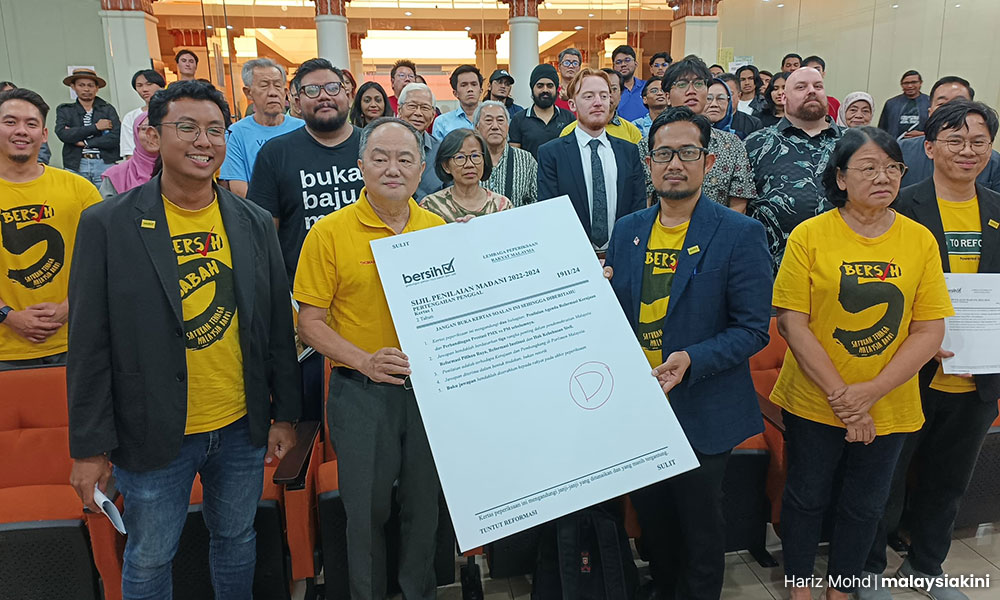ADUN SPEAKS | While I acknowledge and applaud the report card and analysis provided by Bersih on the Madani government’s performance regarding the reform agenda, allow me to provide my views from a broader perspective.
First of all, assessing any government’s performance from a single and narrow point of view can be misleading and shortsighted.
In this case, Bersih’s assessment focuses mainly on electoral reforms and a few laws that are deemed to be limiting human rights, such as the Peaceful Assembly Act, the Printing Presses and Publications Act, etc.
The million-dollar question is: Does only this set of issues cause structural problems for Malaysia as a whole? How about fiscal reforms, public service reforms, and international relations reforms? The list continues to grow.
To me, the most important steps in addressing and solving the problems in this country are identifying and prioritising reform initiatives based on their importance and the effort required to undertake and complete them.
In this regard, I think the Malaysian government, headed by Prime Minister Anwar Ibrahim, has succeeded in selecting and prioritising the reform initiatives.

However, these initiatives are clearly missing from Bersih’s assessment, whether intentionally or unintentionally.
Everyone in this country is aware of the financial impact of the 1MDB scandal and the economic slowdown resulting from Covid-19.
There are significant fiscal implications, which have forced the government to allocate substantial amounts of money to repay the 1MDB debts and cover additional spending during the pandemic.
As a result, the government’s accumulated debts ballooned to over RM1.4 trillion, and new annual debts increased to approximately RM90 billion per annum.
To address this issue, the government has taken bold and important reform measures, including broadening government income, improving the procurement process, and gradually reducing the budget deficit each year.
As a result of these reform initiatives, Malaysia’s credit rating has been upgraded to A- by S&P and BBB+ by Fitch Ratings. I wonder why the results of these fiscal reforms are not included in the Bersih report card.
What about the other successful reform measures?
Another notable reform missing from the Bersih report card is social reforms, especially in addressing income inequality among Malaysians.
Clearly, government assistance to lower-income segments has been increasing since Anwar took office in 2022. Initiatives to end hardcore poverty by providing direct cash aid to this group have produced significant improvements.
The 15 percent salary increase for civil servants and targeted fuel subsidies are among the important steps taken by the government to address income inequality. Yet, these are also missing from Bersih’s assessment.
Question to Bersih: Are all the reform initiatives mentioned above less important than those highlighted by Bersih? If you need to prioritise your reforms within a specific timeframe, which ones would you execute first?
What would the Madani government’s score be if we were to include the reforms I’ve highlighted? Would it still be a “D”?
RIZAL JAMIN is an appointed state assemblyperson for PKR (Pakatan Harapan) in the Pahang legislative assembly.
The views expressed here are those of the author/contributor and do not necessarily represent the views of Malaysiakini.

